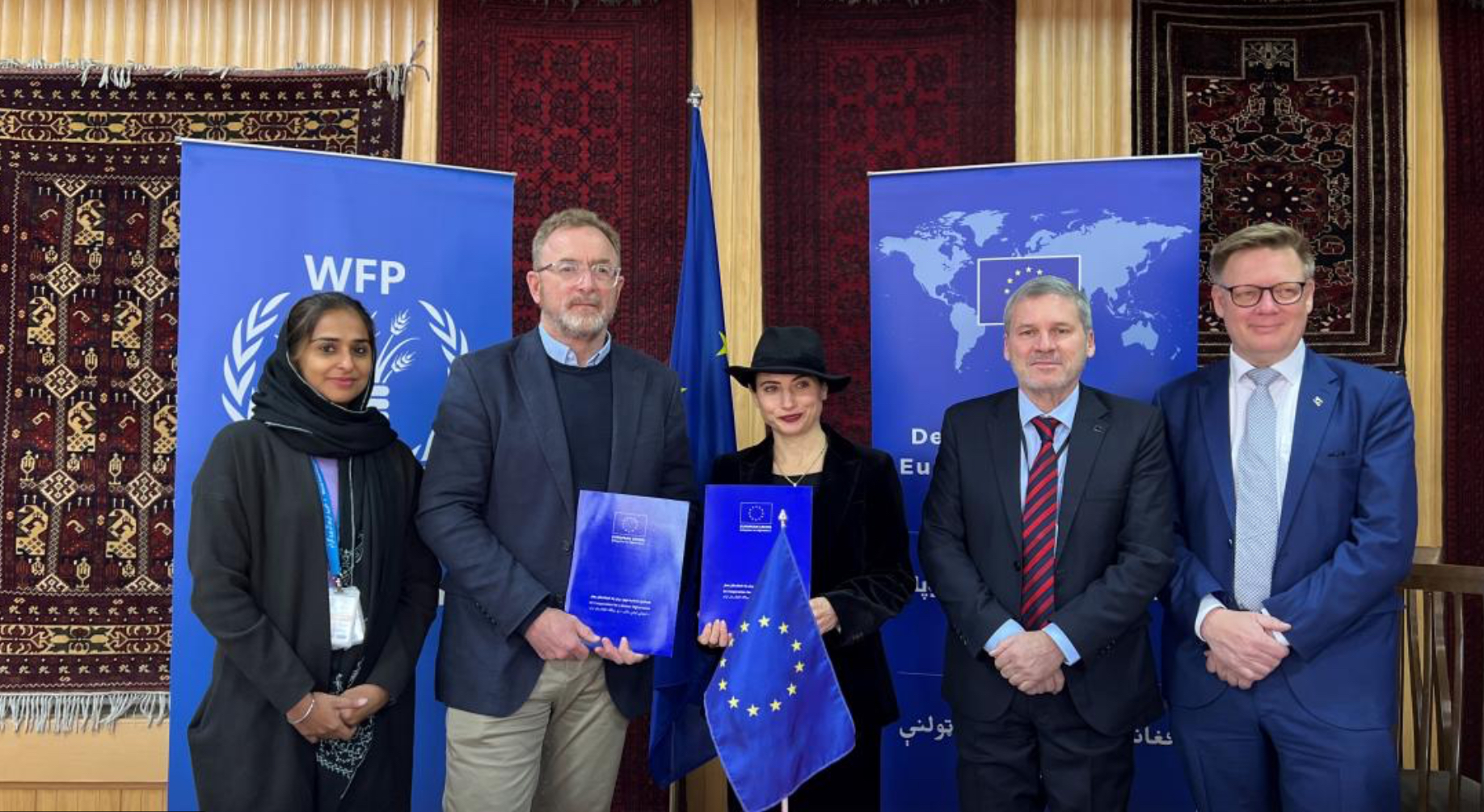The European Union (EU) has pledged a €15mn ($15.8mn) contribution to the United Nations World Food Programme (WFP) to support its ongoing work in Afghanistan. The funds will help build the resilience of local communities, preparing them for natural disasters and the devastating effects of climate change, while promoting sustainable agricultural practices for improved food security.

This contribution comes at a critical time, as Afghanistan continues to face severe climate-related challenges. This year alone, flooding has affected more than 160,000 people, destroying nearly 20,000 homes and thousands of hectares of agricultural land.
“The European Union is committed to assisting the people of Afghanistan in adapting to climate change, which severely threatens food security and livelihoods, particularly in rural communities,” said Veronika Boskovic Pohar, the EU Chargée d’Affaires a.i. in Afghanistan. “Climate-related shocks also weaken host communities' ability to support displaced persons and hinder farmers' efforts to transition from poppy cultivation to licit crops. With this latest contribution, the EU’s total support for WFP’s resilience programme in Afghanistan reaches €85.1mn since 2022.”
The WFP’s approach focuses on building small-scale infrastructure, such as irrigation canals, dams, and flood protection walls, designed to help communities adapt to climate challenges. In addition, farmers are trained to increase agricultural productivity, focusing on crops like wheat, rice, and maize, which can be sold on local markets to generate income.
“The European Union’s funding is essential in helping communities reduce their dependency on humanitarian aid and become self-sufficient,” said Harald Mannhardt, WFP Deputy Country Director in Afghanistan. “Earlier this year, WFP had to halt many projects due to a significant funding shortfall, making this timely contribution even more impactful.”
WFP’s initiatives also include providing vocational training for food-insecure men and women, including returnees from Pakistan. Skills such as tailoring and mobile phone repair are being taught, helping individuals generate income and support their families.
The impact of WFP’s climate-smart initiatives is already evident. In 2024, over 420,000 individuals, including 215,000 men and 208,000 women, have directly benefited from community-based infrastructure. Additionally, more than 13,500 women and 3,000 men have gained marketable skills, while over 5,000 farmers have received support to boost agricultural production and access new markets.
Follow Daryo's official Instagram and Twitter pages to keep current on world news.
Comments (0)